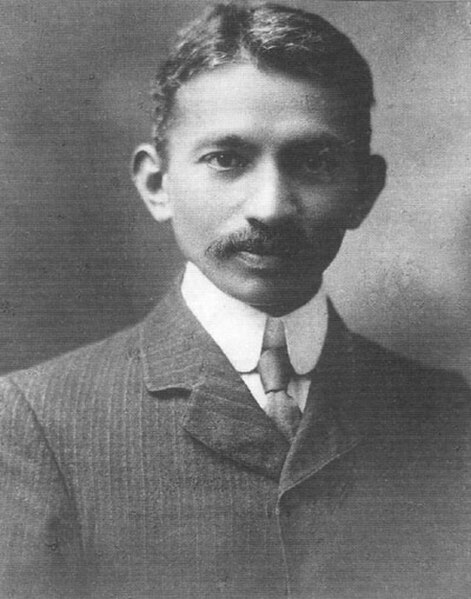Gandhism is a body of ideas that describes the inspiration, vision, and the life work of Mohandas K. Gandhi. It is particularly associated with his contributions to the idea of nonviolent resistance, sometimes also called civil resistance.
Khan Abdul Ghaffar Khan of the Khudai Khidmatgars and Gandhi of the Indian National Congress
Civil resistance is a form of political action that relies on the use of nonviolent resistance by ordinary people to challenge a particular power, force, policy or regime. Civil resistance operates through appeals to the adversary, pressure and coercion: it can involve systematic attempts to undermine or expose the adversary's sources of power. Forms of action have included demonstrations, vigils and petitions; strikes, go-slows, boycotts and emigration movements; and sit-ins, occupations, constructive program, and the creation of parallel institutions of government.
Egypt, 25 January 2011: marchers in Cairo with 'OUT' signs on the 'Day of Anger' against President Mubarak. On 11 February he left office.
Aung San Suu Kyi, Burmese pro-democracy leader, greeting supporters from Bago State, Burma, 14 August 2011. She has stated that she was attracted to non-violent civil resistance, not on moral grounds, but "on practical political grounds". Photo: Htoo Tay Zar
Václav Havel, impresario of civil resistance in the years leading up to the 1989 Velvet Revolution. In April 1991, as President of post-Communist Czechoslovakia, he praised the NATO military alliance; and on 12 March 1999 the Czech Republic (with Havel still as president) joined the alliance. He is seen here on 26 September 2000. Photo: IMF
Gandhi in South Africa in about 1906–1909. Referring to his years there, he later wrote: "... I found that even civil disobedience failed to convey the full meaning of the struggle. I therefore adopted the phrase civil resistance."





